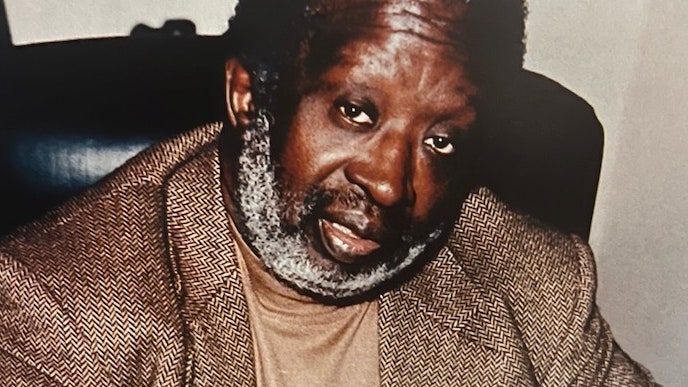Clarence Avant, acclaimed for his unwavering championing of Black artistic talent, has passed away at the age of 92, as confirmed by his family. A statement from his family expresses that while the loss is deeply felt, the enduring impact of his legacy brings solace, with a wide circle of friends and associates who have already shaped and will continue to shape the world for generations to come.
Hailing from Greensboro, North Carolina, Avant made a pivotal move to New York City at the age of 15 in pursuit of work. His early foray into the music industry took root when he became a weekend manager at a nightclub in Newark, New Jersey. Under his guidance, he commenced the management of luminaries such as Sarah Vaughan, R&B sensation Little Willie John, and pianist Lalo Schifrin, notable for his recording of the Mission Impossible theme.
Avant’s adept networking skills and his reputation for relentlessly securing favorable deals for his artists swiftly propelled him to prominence within the industry. Encouraged by his mentor Joe Glaser, he relocated to Los Angeles, where his influence continued to grow. Quincy Jones, a close friend from the late 1960s, described Avant as an essential touchstone for anyone in the industry.
In 1969, Avant initiated Sussex Records, an early home for artists like Bill Withers. The label also signed Sixto Rodriguez, the enigmatic singer-songwriter whose resurgence emerged from the 2012 documentary, “Searching for Sugar Man.” Simultaneously managing, overseeing record labels, and owning KAGB-FM, a Los Angeles radio station dedicated to Black musicians, Avant retained a significant foothold in the entertainment realm.
In the mid-1980s, Avant recognized emerging talents Jimmy Jam and Terry Lewis, enlisting them as a production and songwriting duo for new artists. During the same era, he orchestrated Michael Jackson’s renowned Bad tour, despite initially turning down the opportunity three times.
Appointed chairman of the board of Motown Records in 1993, while the label operated under the Polygram umbrella, Avant’s influence endured. His management of publishing catalogs continued until 2018 when he ultimately sold them to Universal Music Group.
Beyond his industry stature, Avant used his platform to advocate for civil rights throughout his life and later lent his support to Democratic presidential candidates. His contributions were recognized with a star on the Hollywood Walk of Fame in 2016 and the Ahmet Ertegun Award from the Rock and Roll Hall of Fame in 2021, an honor bestowed upon him by Lionel Richie. The 2019 Netflix documentary titled “The Black Godfather” offered a comprehensive look into his life and legacy.
Frequently Asked Questions (FAQs) about Influence
Who was Clarence Avant?
Clarence Avant was a highly influential figure known as the “Godfather of Black Music.” He was a champion of Black artistry and made significant contributions to the music industry and entertainment world.
What was Clarence Avant’s impact on the music industry?
Clarence Avant played a pivotal role in shaping the music industry by managing artists, establishing record labels like Sussex Records, and promoting significant tours such as Michael Jackson’s Bad tour.
How did Clarence Avant support civil rights and advocacy?
Throughout his life, Clarence Avant used his influence to support civil rights and advocate for social causes, leveraging his stature to drive positive change.
What awards and recognition did Clarence Avant receive?
Clarence Avant received accolades like a star on the Hollywood Walk of Fame, the Ahmet Ertegun Award from the Rock and Roll Hall of Fame, and a documentary titled “The Black Godfather” on Netflix.
What was Clarence Avant’s role in Motown Records?
In 1993, Clarence Avant became the chairman of the board for Motown Records, contributing to the label’s direction and success during his tenure.
How did Clarence Avant’s legacy extend beyond the music industry?
Clarence Avant’s legacy extended to supporting Democratic presidential candidates and promoting cultural diversity, leaving an indelible mark on various aspects of society.
More about Influence
- Clarence Avant: The Godfather of Black Music
- Sussex Records: A Legacy of Black Artistry
- Michael Jackson’s Bad Tour: Impact and Significance
- Clarence Avant’s Advocacy for Civil Rights
- Hollywood Walk of Fame: Clarence Avant’s Star
- Rock and Roll Hall of Fame: Ahmet Ertegun Award
- Netflix Documentary: “The Black Godfather”
- Motown Records and Clarence Avant’s Chairmanship
- Clarence Avant’s Influence Beyond Music
